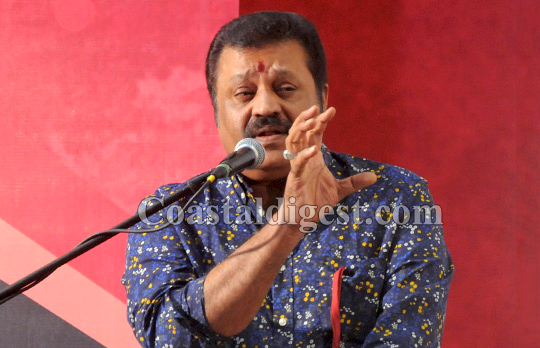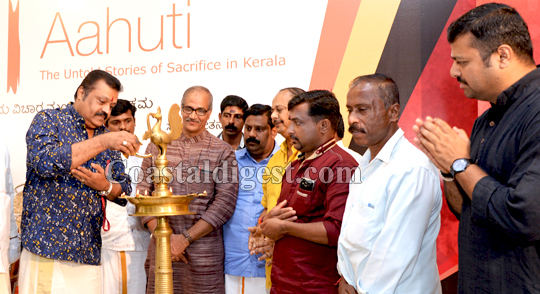Mangaluru, Nov 2: Malayalam superstar Suresh Gopi, who recently made a formal entry to Bharatiya Janta Party, has hurt the sentiments of Sangh Parivar by raising voice against political violence sponsored by both Left and Right wing groups in Kerala.
Mr Gopi was the special guest during the launching ceremony of Aahuti, a Kannada book on communist sponsored violence in Kerala organised by the Citizens Council at Sangh Niketan in Mangaluru on October 30.
Interestingly, Mr Gopi criticised the extremist elements in both red and saffron parties on the occasion. He called upon both BJP and CPI (M) to keep violence-mongers at bay to put an end to political violence in regions like Kannur that witnessed a series of murders in recent months.
The super star also appreciated the Congress party for not indulging in political violence in presence of prominent a galaxy of Sangh Parivar leaders including RSS veteran Dr Prabhakar Bhat Kalladka. According to sources, the BJP leaders in Mangaluru, have complained to the party high command against Mr Gopi.
57-year-old Gopi has acted in more than 200 films and is famous for playing role of honest police officer who takes on corrupt politicians in many of his hit films. He had won the National Award for best actor for Kaliyattam in 1998.
The actor, who is also a green activist, was nominated to the Rajya Sabha by the BJP-led government at the Centre in April 2016. He had at that time said that the nomination as an artiste to the Upper House should not be seen as "political."






Comments
CHADDIGALIGE ONDALLA ONDU DINA BHUDDI BARUTHE
Well said Suresh Sir.Actually Suresh Gopi sir is in wrong Hand But let's see weather he succeeds in changing Fox Mind of his party members.
Bhatta disappointed.Will never invite gopi sir again.
Suresh Gopi’s anti-violence speech in Mangaluru irks Sangh Parivar???????? what do they want violence??? RSS ideology is to kill everyone except brahmins i think
Add new comment